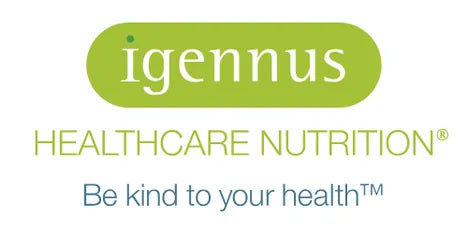We’ve all experienced times when energy levels have been low; whether due to illness, lack of sleep, enduring a stressful time in your life, or an unbalanced diet, low energy levels can be extremely frustrating. Whilst it’s important to give your body the rest it needs when you’re unwell, this is not always the most appropriate way of dealing with low energy in all cases. Persistent low energy levels need to be addressed rather than adapting your lifestyle around your symptom. Many people turn to stimulants such as coffee for a caffeine boost, afternoon cakes and biscuits for a rush of sugar, or a nap to help get them through the day. Whilst there is certainly nothing wrong with the odd coffee, cake and siesta, when used in excess they can themselves exacerbate the problem. From a nutritional perspective, we need to look at areas of your health and lifestyle that may be causing symptoms.
For some, persistent lack of energy can stem from an underlying health condition such as chronic fatigue syndrome (CFS), myalgic encephalomyelitis (ME), iron deficiency anaemia, underactive thyroid or diabetes, as well as many other health conditions, so your first point of call should be your GP to check for any underlying health issues. If such a condition is diagnosed, then your second port of call should be a healthcare practitioner, such as a nutritionist, who will educate you on your health condition and help you to support your body naturally through dietary, lifestyle and supplementation interventions. Here are some of our top tips for dealing with low energy levels.
Diet: balancing your macronutrients to support energy stabilisation
The diet is paramount to energy levels as we eat to fuel the body in order to function optimally, therefore you need to ensure your diet is supporting your body as much as possible. A simple way of increasing your energy is to eat regularly, i.e. every 3-4 hours; ensure you are eating 3 meals per day and add 1-2 snacks in between, especially for any prolonged periods between meals.
Look at your body as a fire, requiring fuel (from food) to keep the energy of the fire going. Carbohydrates work as the paper to your fire, they’re great for a quick boost but they’re quickly burnt up; protein is the wood to the fire, providing more longevity; fat is the coal to your fire and will keep you going for much longer. When you look at food and your body in this way, you can see why a diet rich in carbohydrates will quickly rack up your calorie intake with no steady flow of energy.
When it comes to carbohydrates, it is important to distinguish between simple carbohydrates, consisting of one or two sugar molecules (found in cakes, biscuits, sweets, white bread and pasta, fruit juices and fizzy drinks) and complex carbohydrates, consisting of many sugar molecules joined together, found in starchy vegetables such as sweet potato, legumes and whole grains. Simple carbohydrates are burnt quickly by the body providing instant energy but leave you craving more to boost your energy again. This is what we call ‘the blood-sugar rollercoaster’ and when you’re on it, it’s extremely difficult to get off. Complex carbohydrates, on the other hand, are burnt up slower than simple carbohydrates, providing a steady release of energy, and with a few food swaps, you should be able to even out the highs and lows to eventually maintain a healthy supply of energy to the body, reduce cravings and shift that excess weight around your midriff.
Try swapping your two slices of morning toast made with white bread (simple carbohydrates) for one slice of wholegrain toast (complex carbohydrates) topped with a poached egg for protein, and some avocado for fat; white pasta for whole-grain pasta, lentil pasta or courgetti (spiralised courgette); white rice for brown rice, quinoa or cauliflower rice; biscuits for a protein smoothie, and cakes for homemade granola bars.
Ensuring you consume a source of protein with each meal/snack, with the total of all meals meeting your minimum protein requirements on a daily basis (this article explains how to calculate your protein requirements), as well as including healthy fats from oily fish, nuts and seeds, olive oil, olives and avocados in your diet, will also help to maintain a steady flow of energy throughout the day.
Looking at your caffeine intake is another important factor, as many rely on this to provide them with an energy shot. Whilst one or two cups of coffee can carry many health benefits, some people are slow metabolisers of caffeine (thanks to inherited genes), meaning it takes much longer for the liver to detoxify caffeine from the body. If you drink caffeinated drinks and struggle to fall asleep at night, you could well be a slow metaboliser, with a lack of sleep driving low energy levels. Try setting a cut-off point for caffeine at midday to see if this has a positive effect on your sleeping pattern, and switching your later cups of coffee to mineral water as dehydration can also be a factor in low energy. For those who don’t enjoy drinking water, try infusing it with lemons which will further increase hydration levels and provide a citrus twist, or add berries for a fruity flavour.
Using simple lifestyle techniques to increase energy levels
Exercise is a great way to boost energy levels as it gets the blood pumping around the body, carrying nutrients to cells to produce more energy, and increases levels of feel-good and energy-promoting neurotransmitters, dopamine and serotonin. Whilst the thought of exercise might be off-putting to someone feeling fatigued, this does not need to be a chore. A simple short walk to the local shops, five minutes around the block on your lunch break, or a weekend walk in the park is all you need to start with. Use this time to listen to your favourite artist, an audio book, or take part in a guided meditation and you’ll soon increase the length of time you spend walking. Over time, you may want to increase your pace, try a light jog or sign up to a local gym to try out a fun exercise class, but the important thing is to take it in your own stride and enjoy being active.
With everything, life is about balance so it’s also important to notice when you need some down time and to ensure it’s productive. It is all too common today to be stressed, with stimulation from mobiles, laptops, televisions, the radio, from the moment we wake up to the moment the lights are turned off. Listen to your body and notice when you are in need of some down time. When we are stressed, the sympathetic nervous system is stimulated, putting us in ‘fight or flight’ mode. Taking a moment to have a few deep breaths can relax the body and switch the nervous system from ‘fight or flight’ to ‘rest and digest’ mode, so you may want to adopt some breathing techniques and practise on waking, before each meal and before sleep. Sleep is the most important time for our bodies to restore and conserve energy for the following day. If you struggle to get a restful night’s sleep, you may want to read this article on Top tips for better sleep.
Nutrients that will provide additional support for energy production
Omega-3: EPA & DHA
Omega-3 fatty acids EPA and DHA are required to aid the function and structure of every cell in the body, allowing nutrients to flow into the cells and toxins to flow out. If cells are lacking such vital nutrients, it is easy to see why a general feeling of fatigue and low energy may follow; your cells simply aren’t able to function optimally. Consuming two portions of oily fish such as mackerel, anchovies, salmon and herring will aid with increasing EPA and DHA levels, however a typical western diet consists of high levels of omega-6 arachidonic acid (AA) from foods such as grains, and animal produce fed a diet rich in grains. An imbalance of omega-3 to omega-6 within the body, in favour of omega-6, can lead to silent inflammation, which can in turn affect energy balance. Supplementing with high dose omega-3 fish oil will help to restore the balance of omega-3 to omega-6 to a healthy ratio, and maintain optimal levels to keep inflammation in check.
Our recommendations: Pharmepa Restore & Pharmepa Maintain and Opti-O-3 blood spot test.
CoQ10
The body naturally produces an enzyme called Coenzyme-Q10 (CoQ10) which aids in the production of energy in the body. As we age, the body’s ability to produce CoQ10 decreases, peaking in our 20s and declining after this point. Low levels of CoQ10 are also associated with many health conditions such as cardiovascular disease, diabetes, cancer, muscular dystrophies, CFS and ME; levels are also reduced in smokers. If you have noticed that your energy levels have been reducing over the years, or have an associated health condition, it may be worth considering supplementation with CoQ10 to support the body with energy production.
Our recommendation: VESIsorb Ubiquinol-QH
B vitamins
B vitamins are important for energy production: vitamin B1 is required to turn carbohydrates from your diet into energy; vitamins B2, B3 and B5 aid with energy production from carbohydrates, protein and fats consumed; B6 helps break down stored energy from muscles and the liver; B12 is critical for producing cellular energy in the body. A complex containing the full spectrum of B vitamins will ensure optimal wellbeing and assist in energy production.
Our recommendation: Super B-Complex
Personalising your nutritional requirements
As you have read, there may be many reasons for your feelings of low energy but the above should arm you with lots of information to start tackling your energy levels. We hope you start to see the benefits over the coming months by putting some simple practices into place. Igennus have witnessed confirmation over the years that the path to individual health is unique and you cannot generalise a plan as a ‘one size fits all’. We are aware that many factors could be at play and effectively preventing you from progressing with certain areas of your health. MyOnlineCLINIC has been developed from years of experience of working with customers, and provides a platform for everyone to gain access online to an experienced clinical nutritionist who can look at your personal circumstances, health and needs, and guide you towards feeling revitalised, refreshed and ready to take control of your health.








